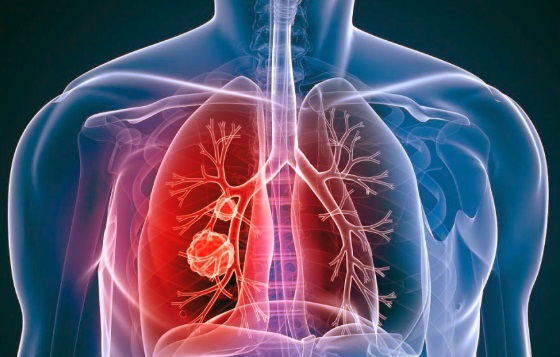Respiratory Viruses Like Flu and SARS-CoV-2 Fuel Drug Resistance and Tumor Progression in Lung Cancer
Nikhil Prasad Fact checked by:Thailand Medical News Team Jul 19, 2025 7 months, 5 days, 23 hours, 26 minutes ago
Medical-News-How Respiratory Viruses Worsen the Fight Against Lung Cancer
Lung cancer, already one of the world’s most lethal cancers, is facing a new and dangerous challenge. Researchers from Sichuan University in Chengdu, China, People's Hospital of Peng'an in China, and Kerman University of Medical Sciences in Iran have uncovered how common respiratory viruses like SARS-CoV-2 and influenza are making lung cancer even more deadly. According to this
Medical News report, these viruses are not just causing infections but are actively contributing to cancer progression and making therapies less effective.
 Respiratory Viruses Like Flu and SARS-CoV-2 Fuel Drug Resistance and Tumor Progression in Lung Cancer
Respiratory Viruses Like Flu and SARS-CoV-2 Fuel Drug Resistance and Tumor Progression in Lung Cancer
The study reveals that patients with lung cancer—especially those undergoing chemotherapy, immunotherapy, or targeted treatments—are more vulnerable to respiratory infections due to weakened immune systems. But the problem doesn’t end there. These viral pathogens can trigger changes in the tumor’s environment, making the cancer more aggressive and harder to treat. For example, the SARS-CoV-2 spike protein binds to ACE2 receptors found in lung tumors, leading to increased inflammation and survival of cancer cells.
Viral Infections Fuel Drug Resistance
One of the most alarming findings in the review is how respiratory viruses influence the tumor microenvironment (TME)—a complex mix of cancer cells, immune cells, blood vessels, and support structures. These viruses can increase immune checkpoint signals like PD-L1, which helps cancer cells escape detection and destruction by the immune system. This leads to resistance against immunotherapies and targeted drugs such as tyrosine kinase inhibitors (TKIs) and immune checkpoint inhibitors (ICIs), which are standard treatments for lung cancer.
The review also noted that these viral infections could disrupt the effectiveness of cancer drugs by promoting chronic inflammation, triggering fibrotic changes in lung tissues, and hijacking key cellular signaling pathways. The result is faster tumor growth, reduced treatment response, and poorer survival outcomes—especially noted during the height of the COVID-19 pandemic when lung cancer patients had notably worse prognosis.
A New Hope Through Oncolytic Virotherapy
Despite the grim outlook, the study also highlights new and hopeful treatment options. One such approach is oncolytic virotherapy. This cutting-edge technique uses viruses—either naturally occurring or genetically engineered—to selectively infect and kill cancer cells without harming healthy tissues. These oncolytic viruses also stimulate the immune system to attack tumors, offering a potential double blow against cancer.
While still under development, early trials and animal models show promise in using certain respiratory viruses as weapons against lung cancer rather than threats. Researchers suggest that combining these virotherapies with conventional cancer t
reatments could one day improve patient outcomes.
Conclusion
This study sheds light on a critical and underappreciated problem: the dangerous synergy between respiratory viruses and lung cancer. These viruses do more than infect—they reshape the cancer environment, foster drug resistance, and worsen disease outcomes. As the medical community continues to battle both COVID-19 and rising influenza waves, addressing these interactions is vital. Future therapies must not only target the tumor but also consider the hidden influence of viruses in treatment planning and patient care.
The study findings were published in the peer reviewed journal: Microbial Pathogenesis
https://www.sciencedirect.com/science/article/abs/pii/S0098299725000470
For the latest on Cancer, keep on logging to Thailand
Medical News.
Read Also:
https://www.thailandmedical.news/news/breaking-covid-19-triggers-rna-protein-that-fuels-cancer-progression
https://www.thailandmedical.news/news/new-insights-into-how-covid-19-affects-lung-cancer-patients-in-the-short-and-long-term
https://www.thailandmedical.news/news/inflammation-in-the-lungs-triggers-dangerous-epigenetic-shifts-that-may-lead-to-lung-cancer
